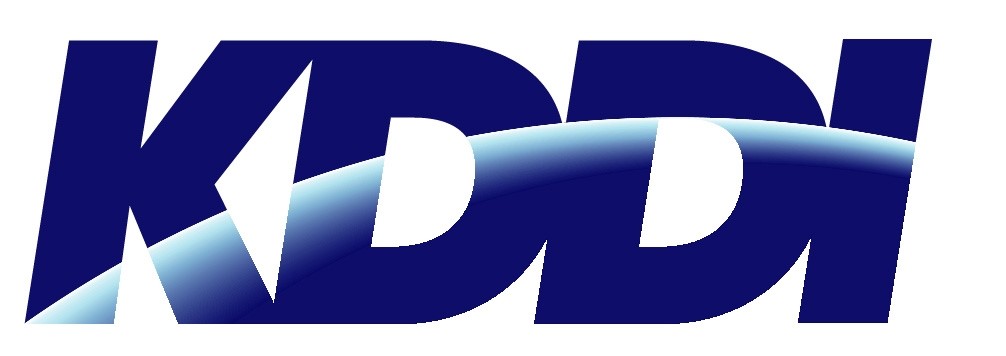doteditorial: Economic Engine – Digital Infrastructure
Digital infrastructures encourage growth and employment on location and have a comparable economic importance to streets, public transportation networks, and water and power supply. Data centers in particular form the basis of the digitalization of society and the economy and provide the foundations for successful metropolitan areas.

© spainter_vfx | istockphoto.com
We live in a period of changing structures and are witnessing a technological breakthrough that is impacting practically all traditional industrial and economic sectors: The Internet and digital infrastructures are changing our communication behavior, our ways of working, and our daily life.
Highlights of the month:
Alongside the articles and industry insights mentioned in this article, dotmagazine also takes a last look at the GDPR before it comes into effect on 25 May. How prepared companies are for the GDPR, based on a representative survey of large German companies, is the subject of Rene Bernard’s article “No Need to Fear the GDPR”; Kristina Vervoort from Netskope looks at GDPR readiness in the cloud in “Data Audits – the Key to GDPR Compliance”; and independent consultant Gerd Simon looks at GDPR compliance as one of the areas to be considered in Data Center Risk Assessment.
For digital transformation to be successful, and to ensure continued competitiveness of any region, a high-performance digital infrastructure is a fundamental prerequisite.
Operators of digital infrastructures play a key role in ensuring digital capabilities and the economic sustainability of every industrial location – here, I am talking about Germany in particular, but the principle can be applied to any location. The sector is an economic motor, a growth engine, a driver of innovation, and a multiplier for other industries – for example, in the area of Industry 4.0 – and offers a guarantee for taxation revenues and employment. Many operators of digital infrastructures, such as data centers, are today already categorized as operators of critical infrastructure, at least in Germany. In our daily lives, more and more activities are based on data streams from and to data centers – whether this is shopping in the local supermarket, in the daily use of smartphones, or doing our banking.
Digital infrastructures as economic growth engines
The German study “Usable Digital Infrastructures - Guarantee for Growth of the Digital Economy” by the Digital Hub FrankfurtRheinMain shows clearly that metropolitan areas with serviceable digital infrastructures attract employees in high-tech sectors, as well as in industry, in the provision of knowledge-intense services, and in the cultural and creative industries. Wherever high-performance digital infrastructures are available, this is where internationally recognized stock exchanges and trading platforms will also be found.
Digitalization engenders economic growth
A regular investment in digital infrastructures makes a direct contribution to increased employment and to growth in a country’s Gross Domestic Product. As Rob Coupland from Digital Realty points out in his article “Accessing Your Data Dividend”, data centers are drivers of the digital economy, due to their creation of jobs and the establishment of new industrial branches downstream. Without digital infrastructure capacity, economic sectors cannot operate. The demand for speed and availability of our increasingly digital society is growing. According to the assessment by the Borderstep Institute, in 2016 there were already more than 200,000 jobs across Germany that were directly or indirectly dependent on the data center market. When it comes to data centers and the job market, there’s also another important area to consider, which I raise in my interview, “Finding Specialist Staff to Power Data Center Growth”: The growth in the digital economy, and the associated enormous growth in the data center market, is leading to a dramatic skills shortage of specialists in data centers. This is a global issue, and we need to make training programs and degree programs attractive for future data center specialists.
Seamless and efficient data center operations are key to the growth of the digital economy
The growth in demand is making it clear that modern, energy-efficient data centers form an important core of our economic system. And energy efficiency remains a core goal of data center operators: Over the years, colocation and hosting providers have substantially enhanced their energy efficiency, through measures like innovative cooling processes (see the article by Jens Zeyer from OVH, “Green Efficiency”). Initiatives like the Green Grid are currently working on finding the balance between sustainable energy production and guaranteeing uptime and availability in data center operations (as illustrated by Interxion’s Lex Coors in the article “OSDA – a New Approach for the Sustainability of Data Centers”). Further efficiencies will also be attained through greater focus on the IT within the data centers.
Also important for the data center’s centrality in value creation is ensuring uptime and availability. Data center operators, according to Gerd Simon in his article “Understanding and Mitigating Risks to Data Center Operation”, need to be vigilant in assessing the range of physical, operational, digital, and administrative risks in the data center. One clear risk to availability is DDoS – and Niko Bender from PlusServer gives a breakdown of the range of methods of DDoS protection and offers advice for small and medium-sized businesses in the article “Two Sides of DDoS Attacks: The Largest Attack of All Time and Focus on SMEs”. More from the administrative and legal perspective, another area where data center operators need to make sure they are on the right trak is compliance with the EU General Data Protection Regulation, a topic which Kristina Vervoort from Netskope offers advice on in “Data Audits – the Key to GDPR Compliance”. For data center operators, the bottom line is that these risks need to be considered, planned for, and where possible mitigated, and processes need to be in place to deal with incidents with as little disruption as possible.
Frankfurt has one of the highest Internet-infrastructure densities in the world
The metropolitan area of Frankfurt RheinMain, in which more than half of commercially-used German Internet data centers can be found, benefits especially from this economic potential. The region has at its disposal the highest Internet platform capacities in the world and the most highly-branched international fiber-optic connections in Germany – and thus one of the highest Internet-infrastructure densities world-wide. FrankfurtRheinMain is home to all renowned international commercial data center providers, and these diverse providers are highly interconnected. The competitiveness of this region benefits from the economies of density, connectivity, and scale offered by digital infrastructures.
This interconnectivity not only drives growth in markets – it drives the transformation of markets, as Ivo Ivanov from DE-CIX demonstrates (see “Journey into an Interconnected Digital World”). Digital is reshaping how business is done, allowing creative scope for new and previously unimagined business models, and giving companies the opportunity to redefine their business cases.
Alliance for the Strengthening of Digital Infrastructure in Germany – a model for a sustainable future
And yet, the economic power of interconnectivity aside, what has worked on a regional level for FrankfurtRheinMain is not reflected at the national level. Despite their economic importance for Germany as the backbone of digitalization, operators of digital infrastructure currently enjoy no adequate political support or subsidization. Without a nationwide roll-out of fiber-optic networks, the talk about Industry 4.0 or the Internet of Things becomes largely academic. And the next generation of the mobile Internet – 5G – will be even more strongly dependent on such infrastructure.
This is why leading operators of digital infrastructure in Germany have, under the auspices of eco, founded the Alliance for the Strengthening of Digital Infrastructure in Germany. With this alliance, they draw attention to the foundations of the Internet and its applications, with the intention of positively co-shaping future political decisions regarding Germany as a digital location. It is important – and this is true around the world, not only in Germany – that politics finally grasps the competitive advantages of high-performance digital infrastructure and supports data centers and other operators of digital infrastructures more strongly, enabling them to be the growth engine of the future digital economy.
At the same time, with effective political backing, our sector would be in a better position to support superordinate political goals, such as climate protection targets: there are many ways, from obligating the operators of district heating and local heat networks to accept waste heat from data centers, through to the potential for economizing on power through IoT solutions and smart grids, in which digital infrastructure can contribute to building a sustainable future.
Theoretical physicist Dr. Béla Waldhauser is Chief Executive Officer of Telehouse Deutschland GmbH and KDDI Deutschland GmbH. Previously he was responsible for the German operations of Global Switch, and prior to that TeleCity. Before this, he was Managing Director for Germany and Austria for Teleglobe. For several years, he has been Leader of the eco Competence Group "Data Center Infrastructure" and since 2011 Member of the Jury for the "German Data Center Prize" in conjunction with the annual "Future Thinking" congress. In 2014 he was invited by the German Federal Ministry of Education and Research, as an expert and as a member of the eco Association, to actively participate in establishing the new strategy platform for “ITC in Horizon 2020”.




